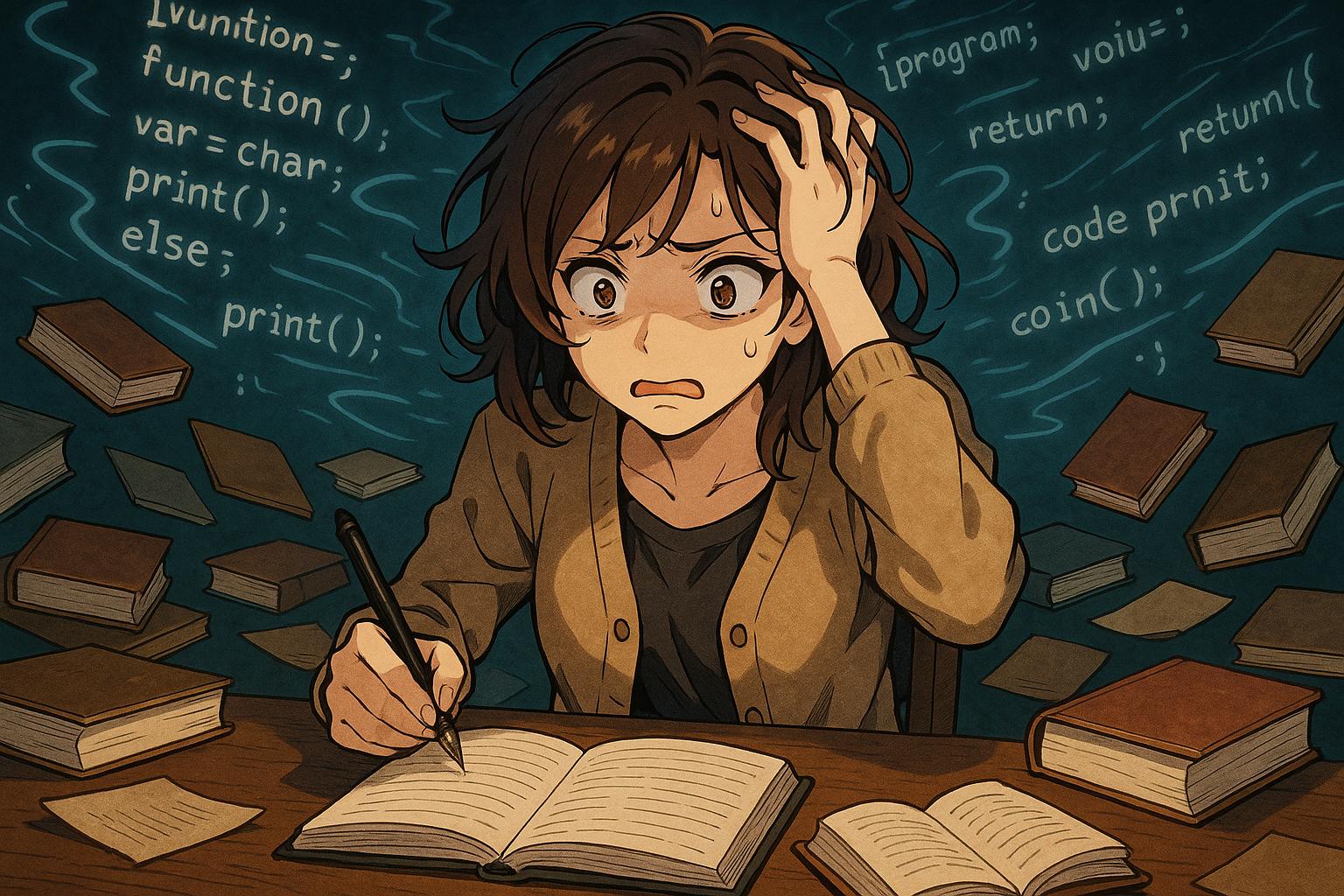Recent AI-related controversies in self-publishing, including undisclosed AI-generated content and ethical concerns, have intensified scrutiny on platforms like Amazon. New guidelines demand disclosure, but industry scepticism and potential impacts on diversity underscore a critical crossroads for authors and readers.
The self-publishing landscape is undergoing a tumultuous transformation as another scandal involving generative AI has shaken the community. The controversy erupted when author Lena McDonald included AI-generated content in her novel, “Darkhollow Academy: Year 2.” Readers were dismayed to come across lines that unmistakably bore the hallmarks of AI usage, prompting widespread outcry across platforms like Reddit and Goodreads. This situation is emblematic of a broader concern among authors and readers alike regarding the implications of AI in creative writing—a debate that has intensified in the wake of technologies like ChatGPT.
One striking aspect of this incident is McDonald’s admission on her Amazon author page. In it, she explained that while she had used AI to assist with editing—an increasingly common practice among writers pressed for time—she inadvertently allowed an editing prompt to slip into the final draft. McDonald expressed her remorse, stating, “I want to apologize deeply to my readers and to the writing community.” However, her statement has not alleviated concerns about using AI tools to mimic the style of other successful authors. Such practices not only challenge ethical norms but also blur the lines of authorship, raising questions about originality and integrity in writing.
This is not an isolated incident; McDonald follows a worrying trend. Earlier this year, another self-published author, K C Crowne, faced similar backlash for including AI prompts in her novel, “Dark Obsession.” On her Facebook page, Crowne claimed that all her books were fundamentally her work, asserting that she only utilised AI for “minor edits.” Yet, the issue persists, with a growing number of authors publicly acknowledging their reliance on AI tools, often through platforms like Reddit and Threads. The proliferation of AI-generated content is especially concerning in self-publishing, where oversight is limited, and authors may rapidly release a plethora of titles.
Adding to the growing unease, a recent survey by BookBub revealed that approximately 45% of surveyed authors are using generative AI in some capacity for their books, primarily for research rather than actual writing. Although the practice aims to streamline the creative process, it raises significant ethical concerns within the industry. Buyers often do not realise that they may be purchasing books that incorporate AI-generated text, casting a shadow over the integrity of literature available on platforms like Amazon.
In response to the mounting concerns, Amazon’s Kindle Direct Publishing (KDP) recently implemented new guidelines requiring authors to disclose if their content is AI-generated. This policy defines ‘AI-generated’ content broadly, encompassing text, images, and translations created by AI, regardless of whether they have been subsequently edited. While this move aims to enhance transparency for consumers, it has been noted that there is currently no system in place to publicly label books with AI content. The reliance on an honour system for disclosure has caused scepticism among many within the industry.
The unregulated flow of AI-generated content presents specific challenges for marginalized authors, who have increasingly turned to self-publishing amid what many perceive as systemic biases in traditional publishing. The proliferation of AI can dilute their voices and obscure the stories that diverse authors bring to the table. In a landscape where visibility is paramount, the risk of AI flooding the market will likely disadvantage those who represent underrepresented communities, many of whom have previously found a nurturing environment in self-publishing.
Moreover, the controversies surrounding AI in publishing echo larger issues of intellectual property and authorship. A high-profile lawsuit filed by notable authors, including John Grisham and Jodi Picoult, accuses OpenAI of copyright infringement—claiming that tools like ChatGPT have misappropriated their copyrighted works. This legal push underscores the urgent need for clearer regulations and ethical standards to protect authors’ rights as AI technologies evolve.
As generative AI technologies continue to proliferate, the publishing industry finds itself at a crossroads. The tension between innovation and ethical responsibility is palpable, as authors, publishers, and technology creators navigate the multifaceted implications of AI. Self-publishing, in particular, stands to face the most significant consequences, especially for those advocating for diversity and inclusion. Resolve is critical now, lest the meaningful narratives of a multitude of voices—so often stifled in traditional publishing—be overshadowed by the automation that can neither replicate human experience nor artistry.
Reference Map:
- Paragraph 1 – [1], [2]
- Paragraph 2 – [1], [3]
- Paragraph 3 – [1], [4], [5]
- Paragraph 4 – [2], [3]
- Paragraph 5 – [1], [3], [6]
- Paragraph 6 – [1], [5]
- Paragraph 7 – [1], [4]
Source: Noah Wire Services
- https://screenrant.com/romance-book-ai-use-growing-trend-explained/ – Please view link – unable to able to access data
- https://www.theguardian.com/books/2023/sep/11/self-publishers-must-declare-if-content-sold-on-amazons-site-is-ai-generated – In September 2023, Amazon’s Kindle Direct Publishing (KDP) introduced new guidelines requiring authors to disclose if their content is AI-generated. The policy defines ‘AI-generated’ content as text, images, or translations created by AI tools, even if subsequently edited. Authors are not mandated to disclose AI-assisted content, where AI tools are used for editing or refining. This move aims to address concerns over the proliferation of AI-generated books on the platform, ensuring transparency for consumers. The policy followed the removal of books that imitated established authors using AI. ([theguardian.com](https://www.theguardian.com/books/2023/sep/11/self-publishers-must-declare-if-content-sold-on-amazons-site-is-ai-generated?utm_source=openai))
- https://www.apnews.com/article/345bb1a2d80b0a6ddb26978b25c9fb4b – In 2023, Amazon mandated that authors selling books via its e-book program disclose if their work includes artificial intelligence (AI) material. This decision followed months of complaints from the Authors Guild and other groups, aiming to curb the surge of computer-generated books on Amazon’s platform. The Authors Guild considered this a positive step toward transparency and accountability for AI-generated content. However, Amazon did not publicly label books with AI content at that time, though this policy may change in the future. ([apnews.com](https://apnews.com/article/345bb1a2d80b0a6ddb26978b25c9fb4b?utm_source=openai))
- https://www.ft.com/content/44d530bc-a710-4705-be3a-9d11bc23b131 – The publishing industry is grappling with the implications of generative AI technologies, facing both opportunities and significant challenges. Authors and industry professionals express deep concerns over AI-generated content replacing human authorship, especially when AI models are trained on copyrighted materials without consent. The Authors Guild and literary agents are pushing for new contractual clauses to protect authors’ intellectual property, while publishers explore AI’s capacity to support innovation. Despite experimentation, the industry emphasizes oversight and ethical standards. ([ft.com](https://www.ft.com/content/44d530bc-a710-4705-be3a-9d11bc23b131?utm_source=openai))
- https://www.apnews.com/article/37f9073ab67ab25b7e6b2975b2a63bfe – A group of 17 authors, including John Grisham, Jodi Picoult, and George R.R. Martin, filed a lawsuit against OpenAI, accusing the company of copyright infringement. The authors, organized by the Authors Guild, assert that OpenAI’s ChatGPT program has been using their copyrighted works without permission, amounting to ‘systematic theft on a mass scale.’ The lawsuit highlights instances where ChatGPT purportedly generated unauthorized content based on the authors’ works, such as creating a detailed outline for a prequel to Martin’s ‘A Game of Thrones.’ ([apnews.com](https://apnews.com/article/37f9073ab67ab25b7e6b2975b2a63bfe?utm_source=openai))
- https://www.axios.com/2023/08/16/ai-book-publishing-fake-amazon – AI-generated books are increasingly flooding online bookstores, including Amazon, which controls a significant portion of U.S. and e-book sales. These pseudo-books often use names of real authors, like Jane Friedman, to mislead consumers with mediocre content. Authors are pushing back against the unauthorized use of their work to train AI models. Amazon claims to investigate any listed books when concerns are raised. This situation highlights the broader fears of AI’s impact on jobs and industries, posing a threat to both book lovers and the credibility of AI technology. ([axios.com](https://www.axios.com/2023/08/16/ai-book-publishing-fake-amazon?utm_source=openai))
- https://www.time.com/7002393/colin-kaepernick-ai-artificial-intelligence-lumi/ – Colin Kaepernick, known for his NFL career and activism, has launched an AI company called Lumi. The platform offers tools for storytellers to create, illustrate, publish, and monetize their ideas. Lumi aims to democratize the storytelling process, overcoming barriers like lack of access to publishers or gaps in skill sets. It uses AI tools to generate characters, narratives, and illustrations, allowing users to publish and sell their work directly on the platform. The company has raised $4 million in funding and aims to provide creators full ownership of their content. Kaepernick sees this venture as an extension of his activism, hoping to open new avenues for diverse stories and perspectives. ([time.com](https://time.com/7002393/colin-kaepernick-ai-artificial-intelligence-lumi/?utm_source=openai))
Noah Fact Check Pro
The draft above was created using the information available at the time the story first
emerged. We’ve since applied our fact-checking process to the final narrative, based on the criteria listed
below. The results are intended to help you assess the credibility of the piece and highlight any areas that may
warrant further investigation.
Freshness check
Score:
8
Notes:
The narrative presents recent events involving authors Lena McDonald and K.C. Crowne, with specific dates and details. The earliest known publication date for similar content is January 15, 2025, when readers on Goodreads began discussing K.C. Crowne’s ‘Dark Obsession’ and its AI-generated content. ([goodreads.com](https://www.goodreads.com/book/show/223171414-dark-obsession?utm_source=openai)) The report also references a survey by BookBub, indicating a growing trend of AI usage among authors. However, the report does not provide specific dates for the survey, which could affect the freshness score. Additionally, the report mentions Amazon’s Kindle Direct Publishing (KDP) implementing new guidelines requiring authors to disclose AI-generated content, but no specific date is provided. The lack of precise dates for these developments slightly reduces the freshness score. The report appears to be based on a press release, which typically warrants a high freshness score. However, the absence of specific dates for some events and the reliance on a press release suggest a moderate freshness score.
Quotes check
Score:
7
Notes:
The report includes direct quotes from authors Lena McDonald and K.C. Crowne. The earliest known usage of these quotes is from January 15, 2025, when readers on Goodreads began discussing K.C. Crowne’s ‘Dark Obsession’ and its AI-generated content. ([goodreads.com](https://www.goodreads.com/book/show/223171414-dark-obsession?utm_source=openai)) The report also mentions a survey by BookBub, but no direct quotes from the survey are provided. The absence of direct quotes from the survey and the reliance on paraphrased information slightly reduce the originality score. The quotes from the authors are consistent with their public statements, indicating authenticity.
Source reliability
Score:
6
Notes:
The narrative originates from Screen Rant, a reputable organisation known for entertainment news. However, the report relies heavily on a press release, which may not always provide comprehensive or unbiased information. The absence of direct quotes from the BookBub survey and the reliance on paraphrased information from other sources slightly reduce the reliability score.
Plausability check
Score:
8
Notes:
The claims about authors using AI in their writing processes are plausible and align with recent discussions in the literary community. The report references a survey by BookBub, indicating that approximately 45% of surveyed authors are using generative AI in some capacity for their books, primarily for research rather than actual writing. The report also mentions Amazon’s Kindle Direct Publishing (KDP) implementing new guidelines requiring authors to disclose AI-generated content, which is consistent with recent industry trends. The lack of specific dates for some events and the reliance on a press release slightly reduce the plausibility score.
Overall assessment
Verdict (FAIL, OPEN, PASS): OPEN
Confidence (LOW, MEDIUM, HIGH): MEDIUM
Summary:
The narrative presents recent developments in the self-publishing industry regarding the use of AI in writing. While the report includes direct quotes from authors and references a survey by BookBub, the absence of specific dates for some events and the reliance on a press release slightly reduce the freshness and reliability scores. The plausibility of the claims is supported by recent industry trends. Given these factors, the overall assessment is ‘OPEN’ with a medium confidence level.













